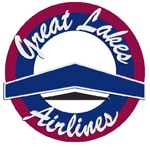
Following the New York Metropolitan Transportation Authority’s Jan. 15 announcement that it is rejecting a proposed series of wage increases for unionized employees on the Long Island Rail Road, SMART Transportation Division General Committee of Adjustment GO 505 has signaled that its members are prepared to strike as early as March 21.
The wage increases and other recommendations were the findings of Presidential Emergency Board 244, which was appointed by President Barack Obama to settle a long-running dispute between LIRR management and its unionized employees.
“With the guidance and support of our SMART International Union, along with the teamwork and solidarity of our brothers and sisters from the sheet metal side of SMART, the Transportation Communications Union and the National Conference of Firemen & Oilers, 70 percent of the represented workforce on LIRR is prepared to deliver on the actions allowable by the process of self-help, as per the Railway Labor Act,” said GO 505 General Chairperson Anthony Simon.
“In addition, we have the support of Transport Workers Union Local 100, which demonstrates an overwhelming sign of solidarity from labor to MTA.”
“Due to the MTA’s unwillingness to accept the recommendations of PEB 244, and without their request for a second board, our labor coalition is prepared to strike as early as March 21. While we have said time and time again that this is not what labor wants for the riders at the MTA, it will be the sole result of the MTA’s unwillingness to take the next step.”
The three board members recommended that the LIRR pay wage increases totaling 18.4 percent over six years (2.9 percent per year) and that employees begin contributing to health insurance premium costs. After factoring in the recommended employee health insurance contributions, the board’s recommendations will produce net wage increases of 2.5 percent per year.
The board’s wage recommendations are retroactive to the first year of the contract dispute, which has been ongoing for more than three years. The board rejected MTA’s demand that workers accept three years of net zero wage increases, followed by two, two-percent increases over five years.
The board also rejected MTA’s demand for major concessions in pensions, including a permanent five-percent employee contribution.
In its recommendations issued Dec. 22, the PEB said the wage increases were comparable to recent commuter settlements in large cities like Chicago and Boston.
Simon said that since its Jan. 15 announcement, the MTA has refused to say if it would seek a second PEB and has declined to meet with him or leaders of any of the other affected unions in the bargaining group.
“Strong leadership requires strong action. Now is the time our SMART membership, and the membership of our supporting unions, realize that we are ready to deliver. Ready for March 21 … or with MTA action, ready for the next step.”
“We need the full support of our members and their full trust in their leadership. The-long standing battle cry for labor has never been more true, ‘progress through unity.’”
To view the complete PEB report, click here.

 Great Lakes Airlines will end Minneapolis flights from Fort Dodge, the only commercial airline service available at the north-central Iowa airport.
Great Lakes Airlines will end Minneapolis flights from Fort Dodge, the only commercial airline service available at the north-central Iowa airport. Lawmakers are calling for a comprehensive review of the nation’s rules that govern freight rail shipments of crude oil cargo following a string of rail accidents in recent months, and after receiving a warning from safety regulators that inaction could lead to a “major loss of life.”
Lawmakers are calling for a comprehensive review of the nation’s rules that govern freight rail shipments of crude oil cargo following a string of rail accidents in recent months, and after receiving a warning from safety regulators that inaction could lead to a “major loss of life.”